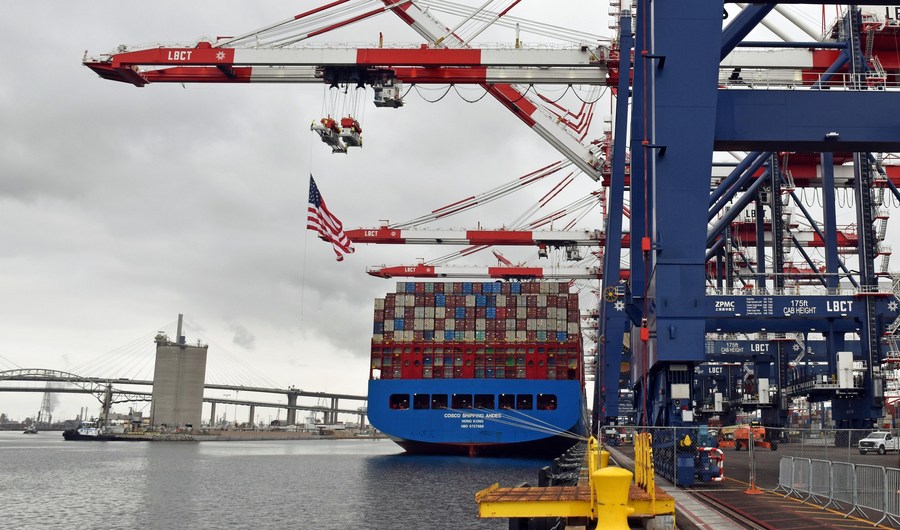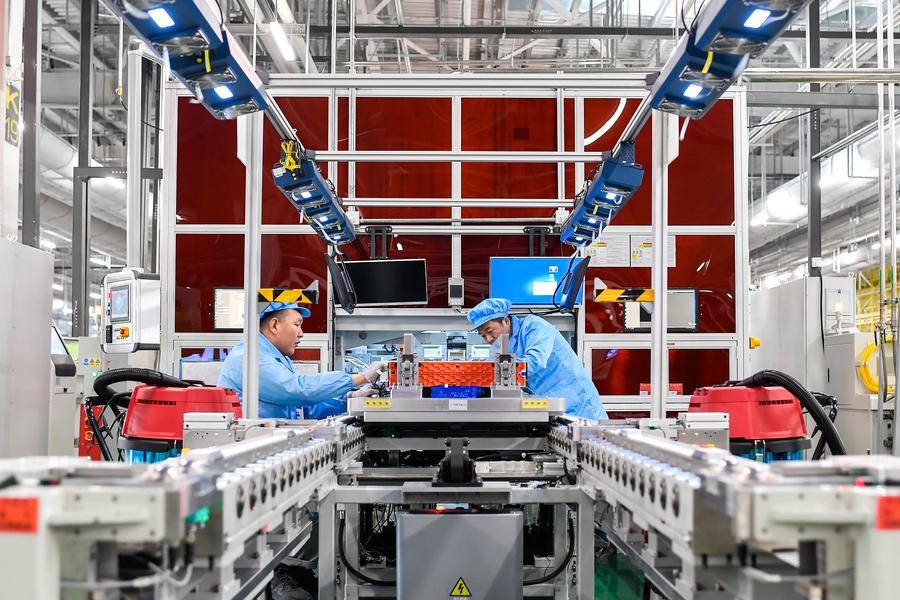Will Trump Start a New Tariff War Against China?

China and the U.S. have long developed mutually beneficial economic ties over the past decades. Moreover, China is more resilient, stronger, and more confident than it was eight years ago.
Editor’s Note: U.S. President-elect Donald Trump announced on his social media platform that he would impose tariffs on China, Mexico, and Canada. During his election campaign, Trump also made the statements that he would impose tariffs of 60 percent or more on imports of Chinese goods and suggested he could impose a tariff of 1,000 percent or higher on vehicles imported from Mexico. These remarks bring more uncertainties to the world economy. Why would Trump threaten to wield tariffs against U.S. trading partners in his second presidential tenure? Will his tariff plan on China prevail? In an interview with China Focus, Wang Yiwei, professor of international studies at Renmin University of China, shared his insights into Trump’s possible trade policy and the China-U.S. relations. Edited excerpts of the interview are as follows:
China Focus: What are the reasons behind Trump’s proposed tariffs on China?
Wang Yiwei: Probably, Trump wants to use tariffs to exert pressure on other countries, especially China, aiming at shaking China’s status as the world’s factory and hollowing out its manufacturing.
Firstly, Trump uses tariffs as a weapon to bargain with China in trade negotiations. In his first term, he had employed this tactic. During the presidential election campaign, he again released such signals. The recent tariff threat comes from the belief among U.S. politicians that globalization is not profitable to the U.S., but particularly favors China. They think that globalization causes the hollowing out of the U.S. manufacturing and the increase of unemployment rate. Therefore, they choose to impose tougher tariffs to retrieve their ‘loss’.
Secondly, Trump wants to observe the reactions of the target trading partners to his remarks. He will then take the opportunity to further increase tariffs or use other coercive means to force the target trading partners to make concessions. This is a negotiation tactic he loves to use.
However, Trump has changed possible tariff rate from the initial 60 percent during his campaign to 10 percent recently. The main reason might be that 60 percent would be unsustainable for American businesses and consumers. The U.S. is currently facing high inflation, and Trump needs to focus on boosting the economy to fulfill his campaign promise.
Thirdly, the tariffs targeting China are designed to undermine its status as the world’s factory. The trade war is intended to beat China’s manufacturing and force manufacturers move from China to the U.S. or other regions in the world.
Manufacturing is one of China’s core competitiveness, closely related to the country’s employment, economic development, and social stability. The previous trade war had limited impact on the Chinese economy because of the resilience and stability of its manufacturing sector. Thus, the forthcoming U.S. administration might seek to undermine China’s leading position in global manufacturing.

China Focus: If the U.S. launches a new round of protectionism offensive, how will it impact its economy and the trade relations with China?
Wang Yiwei: As the fact shows, China and the U.S. are highly interdependent in economy. Trade war will certainly affect various industries and businesses of both countries.
In many industries, the U.S. is heavily reliant on imports from China, such as clothing, home appliance and materials like rare earth. Currently, the U.S. has no better alternatives to replace China as a major source of imports. Imposing more tariffs will lead to the increase of costs which will paid by U.S. importers and consumers. Therefore, Chinese businesses should be more confident to deal with the possible higher tariffs.
For those enterprises that have formed a symbiotic relationship in the supply chain, the tariff weapon is like lifting a rock only to drop it on one’s own toes. American businesses will suffer heavy losses. Luckily, the business communities in both countries have long foreseen this possibility and already prepared some alternatives or contingency strategies, so the impact may not be too severe.
Nonetheless, some export-oriented Chinese enterprises, particularly those in the coastal areas that used to mainly export to the U.S. market, will indeed see some impacts.
And certain high-tech industries in China are expected to be affected a lot. However, based on the experience during Trump’s first term, these enterprises might have been working on alternative plans and diversifying their markets as well.
To make America great again, Trump’s protectionism move is not just against China only, but against the whole world and it will backfire on U.S. itself.

China Focus: Is China’s economy capable of withstanding the impact of the possible tariff war?
Wang Yiwei: To address potential risks, China will take proper measures, such as those outlined at the annual Central Economic Work Conference held at the end of the year, to boost domestic demand, enhance consumption capacity, and expand the Belt and Road cooperation.
There is no doubt that external pressure looms, but it is not as if Trump could intimidate China as he expects. China is a major power, boasting a vast market and comprehensive industrial system. China and the U.S. have long developed mutually beneficial economic ties over the past decades. Moreover, China is more resilient, stronger, and more confident than it was eight years ago.
In fact, the idea of using tariffs to coerce a country, especially one like China—a major player in global trade—has been proven nearly impossible. The U.S. has been trying to weaken China’s leading role as the world’s manufacturing powerhouse and interrupt China’s modernization process through various means such trade war, tech war, decoupling and derisking in recent years. All these offensives have failed at last.
No matter what policy Trump will take on China in his second term, China should strengthen internal governance, including maintaining its advantage in manufacturing, upgrading industries, boosting domestic consumption, and enhancing core competitiveness.
Reported by Niu Huiying
Translated by Bai Shi and Niu Huiying
 Facebook
Facebook
 Twitter
Twitter
 Linkedin
Linkedin
 Google +
Google +










